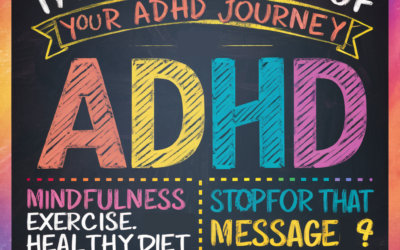Before the pandemic we were in the middle of a teen mental health crisis – with girls at its epicenter.
Since 2010, depression, self-harm and suicide rates have increased among teen boys. But rates of major depression among teen girls in the U.S. increased even more – from 12% in 2011 to 20% in 2017. In 2015, three times as many 10- to 14-year-old girls were admitted to the emergency room after deliberately harming themselves than in 2010. Meanwhile, the suicide rate for adolescent girls has doubled since 2007.

Rates of depression started to tick up just as smartphones became popular, so digital media could be playing a role. The generation of teens born after 1995 – known as iGen or Gen Z – were the first to spend their entire adolescence in the age of the smartphone. They’re also the first group of teens to experience social media as an indispensable part of social life.
Of course, both boys and girls started using smartphones around the same time. So why are girls experiencing more mental health issues?
Mining three surveys of more than 200,000 teens in the U.S. and U.K., my colleagues and I were able to find some answers.
The screens we use
We found that teen boys and girls spend their digital media time in different ways: Boys spend more time gaming, while girls spend more time on their smartphones, texting and using social media.
Gaming involves different forms of communication. Gamers often interact with each other in real time, talking to each other via their headsets.
In contrast, social media often involves messaging via images or text. Yet even something as simple as a brief pause before receiving a response can elicit anxiety.
Then, of course, there’s the way social media creates a hierarchy, with the number of likes and followers wielding social power. Images are curated, personas cultivated, texts crafted, deleted and rewritten. All of this can be stressful, and one study found that simply comparing yourself with others on social media made you more likely to be depressed.
And, unlike many gaming systems, smartphones are portable. They can interfere with face-to-face social interaction or be brought into bed, two actions that have been found to undermine mental health and sleep.
Are girls more susceptible than boys?
It’s not just that girls and boys spend their digital media time on different activities. It may also be that social media use has a stronger effect on girls than boys.
Previous research revealed that teens who spend more time on digital media are more likely to be depressed and unhappy. In our new paper, we found that this link was stronger for girls than for boys.
Both girls and boys experience an increase in unhappiness the more time they spend on their devices. But for girls, that increase is larger.
Only 15% of girls who spent about 30 minutes a day on social media were unhappy, but 26% of girls who spent six hours a day or more on social media reported being unhappy. For boys, the difference in unhappiness was less noticeable: 11% of those who spent 30 minutes a day on social media said they were unhappy, which ticked up to 18% for those who spent six-plus hours per day doing the same.
Why might girls be more prone to unhappiness when using social media?
Popularity and positive social interactions tend to have a more pronounced effect on teen girls’ happiness than boys’ happiness. Social media can be both a cold arbiter of popularity and a platform for bullying, shaming and disputes.
In addition, girls continue to face more pressure about their appearance, which could be exacerbated by social media. For these reasons and more, social media is a more fraught experience for girls than for boys.
From this data on digital media use and unhappiness, we can’t tell which causes which, although several experiments suggest that digital media use does cause unhappiness.
If so, digital media use – especially social media – might have a more negative effect on girls’ mental health than on boys’.
Looking ahead
What can we do?
First, parents can help children and teens postpone their entry into social media.
It’s actually the law that children can’t have a social media account in their own name until they are 13. This law is rarely enforced, but parents can insist that their children stay off social media until they are 13.
Among older teens, the situation is more complex, because social media use is so pervasive.
Still, groups of friends can talk about these challenges. Many are probably aware, on some level, that social media can make them feel anxious or sad. They might agree to call each other more, take breaks or let others know that they’re not always going to respond instantly – and that this doesn’t mean they are angry or upset.
We’re learning more about the ways social media has been designed to be addictive, with companies making more money the more time users spend on their platforms.
That profit may be at the expense of teen mental health – especially that of girls.
Jean Twenge has received speaking honoraria from for-profit and non-profit entities for presenting research.
She is also the author of The Narcissism Epidemic: Living in the Age of Entitlement, and iGen: Why Today's Super-Connected Kids Are Growing Up Less Rebellious, More Tolerant, Less Happy--and Completely Unprepared for Adulthood--and What That Means for the Rest of Us
Benefits of Journaling
Journaling is a powerful tool for coping with grief and the complex emotions that come with losing a loved one. Here are some ways a journal can help navigate the grieving process: Provides an Outlet for Emotions Grief often brings a whirlwind of intense feelings like...
How to Get Over the Death of a Service Dog like a Vietnam Veteran in 78 minutes.
This is an excerpt about a Vietnam veteran that got over several traumatic memories and one of them was about how he got over the death of his service dog, Rex, by using a framework for reconsolidating (rewriting) memories. By using this strategy, 'Clinical...
The Ultimate Guide to Walking with a Weighted Vest for Maximum Fitness Benefits
Walking with a weighted vest has become increasingly popular among fitness enthusiasts and individuals looking to add an extra challenge to their daily exercise routine. By incorporating the added resistance of a weighted vest, you can amplify the intensity of your...
The New Midlife Crisis: Navigating the Challenges of Middle Age
In the ever-evolving landscape of modern life, the concept of a midlife crisis has taken on a new form. No longer confined to the stereotypical image of a middle-aged man buying a sports car or pursuing a younger partner, the challenges faced by those in their 40s and...
Stop Overthinking and Anxiety: Practical Tips to Quiet Your Mind
How many of you find yourselves constantly worrying, ruminating on the past, or catastrophizing about the future? Overthinking and anxiety can be such a burden, robbing us of our peace of mind and preventing us from living our best lives. But the good news is, there...
Musashi Miyamoto – Review of ‘The Way of Walking Alone’
Musashi Miyamoto wrote the Dokkōdō or The Way of Walking Alone. Miyamoto Musashi (1584-1645) was a legendary Japanese swordsman, ronin, and author renowned for his undefeated record in 61 duels. He is best known for his seminal work, "The Book of Five Rings," a...
Managing ADHD: Strategies for Improving Focus, Organization, and Productivity
Attention-Deficit/Hyperactivity Disorder (ADHD) is a common neurodevelopmental condition that affects an individual's ability to focus, control impulsive behaviors, and manage their time and tasks effectively. While ADHD can present significant challenges, there are a...
Mastering Emotional Control: Strategies for Success
Emotional regulation is a critical skill that allows us to navigate life's challenges with grace and resilience. When we can effectively manage our emotions, we are better equipped to make sound decisions, maintain healthy relationships, and achieve our goals....
How to Identify Your Highest Excitement
How to identify your highest excitement: The key is to tune into your feelings and sensations in the present moment, without overthinking or trying to control the process. As Bashar explains, "When you understand what excitement is, you'll understand why you don't...
The Hidden Message in Synchronicities: 5 Different Types of Synchronicity
Have you ever experienced a seemingly random coincidence that felt strangely meaningful? Perhaps you were thinking about an old friend, only to have them call you moments later. Or maybe you stumbled upon the perfect solution to a problem you'd been struggling with,...
Unlocking Your Super Brain: Neuroplasticity and Neurogenesis Explained
Have you ever wondered what's really going on inside your brain? How it has the incredible ability to adapt, change, and even grow new cells throughout your lifetime? Well, my friends, prepare to have your minds blown! In this video, we're going to dive deep into the...
The Source by Dr. Tara Swart Book Review Key Takeaways
Review of The Source by Tara Swart. Neuroscientist and Senior Lecturer at MIT reveals the surprising science that supports The Law of Attraction as an effective tool for self-discovery and offers a guide to discovering your authentic self to access your best life now....
The Power of Visualization: Lessons from Natan Sharansky, Arnold Schwarzenegger, and Michael Phelps
Visualization, the practice of creating vivid mental images of desired outcomes, has long been recognized as a powerful tool for achieving success. In this video we will look at three extreme individuals that harnessed the power of visualization to remarkable effect...
Rewire Your Brain for Happiness: 7 Proven Techniques
Happiness is something we all strive for, yet it can often feel elusive or out of reach. The good news is, the latest neuroscience research has uncovered powerful techniques we can use to train our brains to be happier. In this video, I'm going to share 7 proven...




























